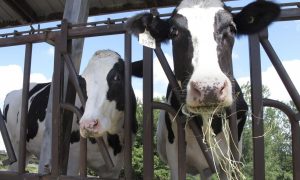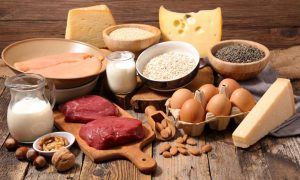
The Mesa de Productores Lecheros Santafesinos MeProLSaFe already anticipated in the first edition of the program Dólar Soja, that the constant mistakes of the government and now added to the historic drought, would further deepen the crisis in the sector.
The macroeconomics that the government has been developing delays investment decisions and generates retraction in the sector, but milk will not stop flowing, because we are facing a phenomenon of concentration, and not a decrease in production.
Yes, the drought will delay production next year, because some reserves will arrive later, due to the delay in corn planting, affecting confined and pastoral dairy farms, but the market will eventually accommodate them.
There is alarm because the disappearance of the smaller dairy farms would cause a decrease in production and the consequent lack of milk and all its derivatives on supermarket shelves. However, there will not be a lack of milk, because the farms will not disappear, but will be absorbed by larger ones. There will be fewer, larger dairy farms producing the same amount of milk.
Today’s production system demands a higher scale, which means that some producers will have to leave the business, as they have been developing it, and others will enlarge. But dairy farming will not die out, but will have to adapt to changing times.
The government needs reserves to be able to meet its international debt commitments, and it is throwing measures on the producers’ backs that do not take into account the damage they cause.
The implementation of the Dolar Soja program, the transfer of income to grain exporters, large agricultural producers and landowners, fully reaches small producers, takes out of the game and leaves shaken all activities dependent on grains, and that also rent the land they work.
MeProLSaFe forecasts that, in the coming months, the climate and political combo will bring about a sharp drop in dairy production, leading to a shortage of processed products and the disappearance of a large number of dairy farms and dairy producers. But as far as politics is concerned, there is nothing new under the sun … It is the drought that will be felt the most.
The entity not only predicts complicated times, but also proposes concrete actions to avoid it and to balance the needs of the government with those of the producers: the government must help the smallest ones, by compensating the price of raw milk at the farm gate, with financing at low rates and long terms, and modifying the cost structure.
They say that if these alternatives are not implemented, or are contemplated at the wrong time, very few dairy farms will survive the economic imbalance and the extreme drought, and there will be a shortage of processed products for next year. Prices will skyrocket and impact on the cost of the basic food basket, aggravating inflation.
Aproveitem a ? barata esse ano, pq ano que vem além de não comer vc vai ficar dizendo que a culpa foi do Bolsonaro.
E não tem L q resolva hein.
— ??????? A2G (@_girot0_) December 9, 2022
? Parallelisms…
They had already talked about all this in September, in several meetings with officials, when the desperate Dolar Soja measure was a novelty, and promised to be unique and unrepeatable, and they made proposals that are still in force. The promised answers are still awaited.
It is good to consume dairy products, but producing them is increasingly complex and requires changes in the producer’s thinking and infrastructure. Milk will not stop flowing, but macroeconomic policies force dairy farmers to rethink the business.





















